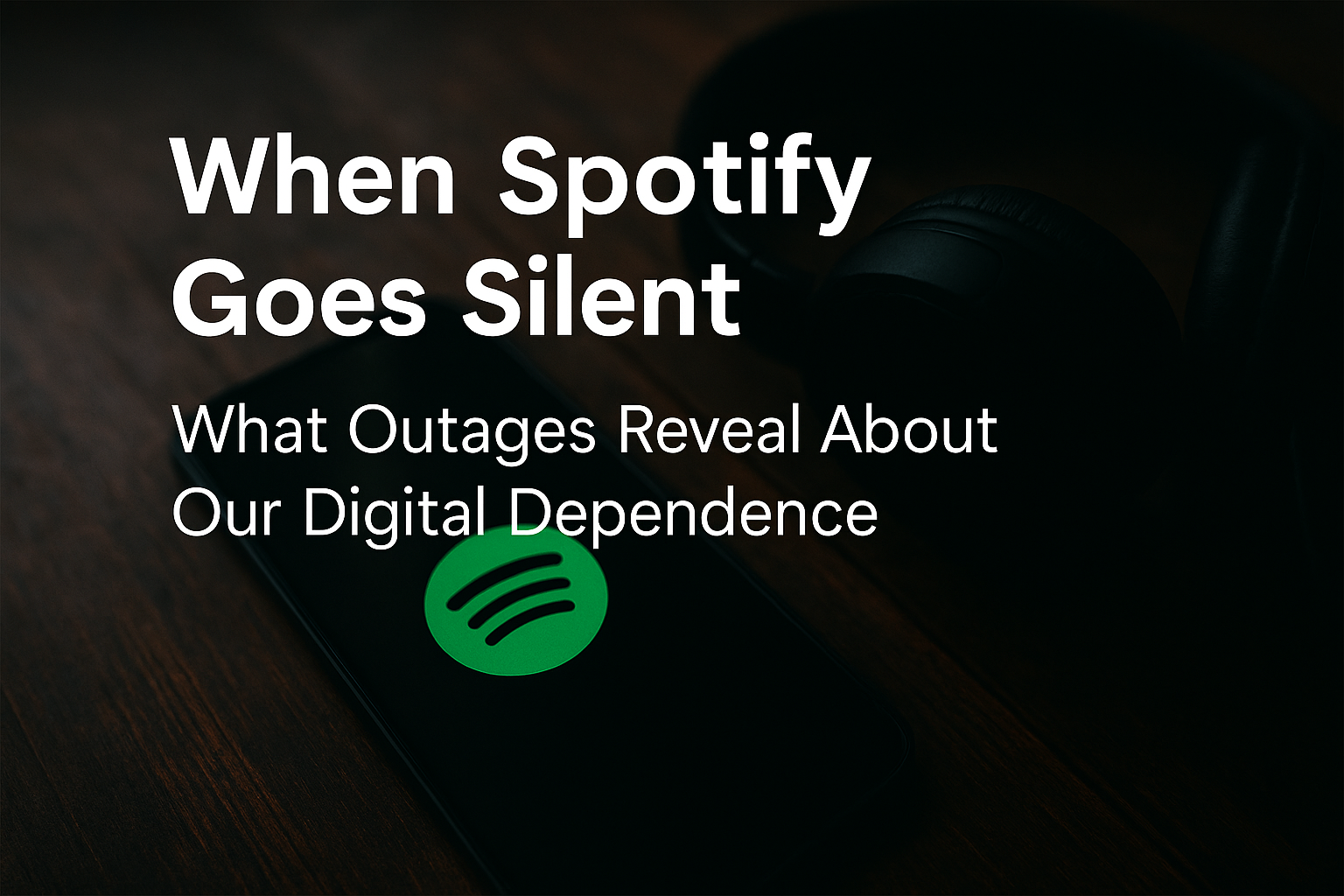In the early hours of April 16, 2025, nearly 50,000 users across the globe reported problems with Spotify, one of the world’s most beloved music and podcast streaming services. The homepage glitched, search failed, and songs refused to play. X (formerly Twitter) exploded with memes, panic, and poetic despair — “Spotify is down and the thoughts are getting in,” wrote one user. Another joked, “Any app I pay for is not allowed to be down.”
While this incident will soon be fixed — as Spotify confirmed their teams were working on it — moments like these highlight something deeper and more lasting: our emotional and cultural dependence on streaming platforms.
Why Do Spotify Outages Hit So Hard?
Spotify isn’t just a tech platform — it’s woven into people’s routines. It’s their morning commute companion, their gym motivator, their study partner, their late-night escape. When Spotify stops, it’s not just the music that’s gone — it’s a disruption in mood, rhythm, and sometimes even productivity.
In a 2024 study by the Digital Wellbeing Institute, over 72% of participants aged 18-34 reported they use music streaming to regulate their emotions daily.
Outages and Digital Anxiety: A Growing Psychological Impact
Unexpected tech failures like Spotify’s can trigger more than just frustration — they can induce stress, anxiety, and even withdrawal-like symptoms in some users. This is part of a larger psychological phenomenon known as “digital dependency.”
Table: Emotional Responses to Streaming Outages
| Emotion | Common Reactions | % of Users (Est.) |
|---|---|---|
| Frustration | Rapid app reinstall, checking multiple devices | 65% |
| Anxiety | Fear of account hacking or lost data | 40% |
| Confusion | Blaming self or internet provider | 38% |
| Humor & Meme Posts | Turning to social media to vent or joke | 50% |
(Source: Flashpoint Digital Behavior Poll, 2025)
The Twitter Refuge: Modern Town Square in Times of Crisis
When Spotify crashes, people don’t just sit in silence. They run to X. This isn’t just about troubleshooting — it’s about shared experiences. These platforms become instant emotional support networks.
- “Spotify down during my morning commute. THIS IS SICK.”
- “My Spotify keeps pausing every 10 seconds. I thought my phone was possessed.”
This collective online reaction serves as a form of community therapy, where humor and solidarity help ease the frustration of disconnection.
Tech Outages as Cultural Moments
Believe it or not, major outages become cultural timestamps. People remember where they were when Netflix stopped streaming or when Instagram wouldn’t load. It’s the modern equivalent of a city losing power — only now, it’s digital.
And just like that, Spotify outages spark creativity. Artists joke about it, users write parody lyrics, and podcasts joke about “surviving the silence.”
Building a Healthier Relationship with Streaming Services
If there’s a silver lining to events like this, it’s the reminder to occasionally step back and diversify our media habits. Here are some helpful evergreen tips:
How to Cope When Your Streaming Service Fails
- ✅ Have Offline Playlists Ready: Spotify Premium allows you to download music for offline use. Always have a fallback.
- 📻 Try an Old-School Radio or MP3: Nostalgia meets practicality.
- 📖 Create a “No-Internet” Routine: Reading, journaling, or simply sitting with your thoughts — it’s uncomfortable but healthy.
- 🤝 Connect With Real People: Use the time to talk, walk, or just be present.
The Bigger Lesson: Fragility in the Cloud Era
Spotify’s outage will be fixed — maybe in hours, maybe even before you read this. But these moments highlight an important truth: our hyperconnected world is still fragile. Whether it’s due to server overloads, coding bugs, or cyber threats, even the most robust platforms can stumble.
And when they do, it’s a wake-up call. Not just for tech companies — but for us.
Final Thought
We live in an age where music is no longer confined to vinyl or CDs but streams invisibly through the air. That convenience is magical — but it’s also precarious. Maybe, every once in a while, it’s okay to sit in the silence, breathe, and remember that we’re still human — even without a soundtrack.
Maybe you also like:
- ChatGPT Addiction Alert: Heavy Users Developing “AI Friendships”
- Mapping the Mouse Brain: A Leap Toward Understanding Human Intelligence
- Mental Health in the Age of Hyperconnectivity: Finding Balance in a Constantly Connected World
Follow me on X, YouTube,
Pinterest , Facebook
Threads and Instagram
For more updates visit: flashpointnews.com.br


